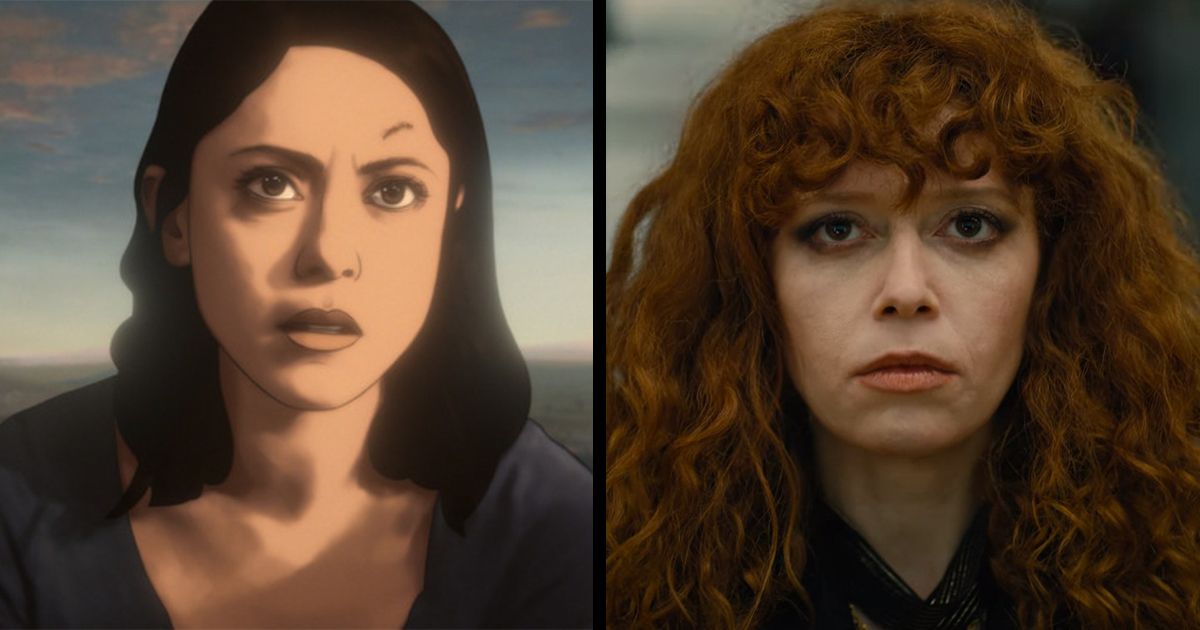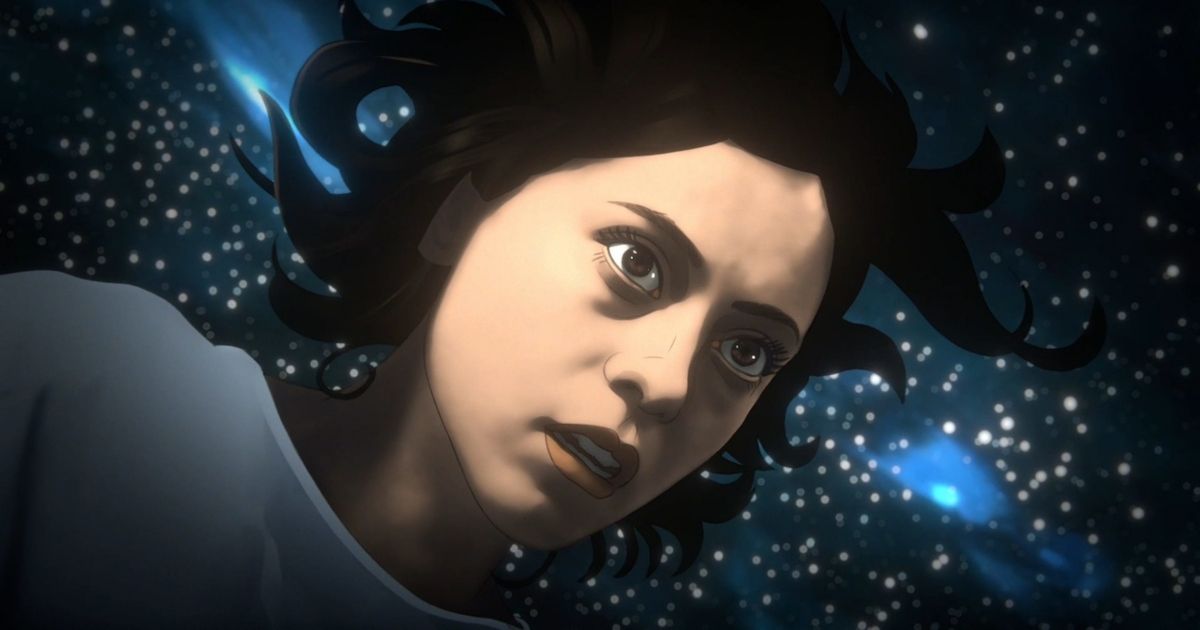This article contains spoilers for Russian Doll and Undone.
In our ever-expanding media landscape, it can sometimes be difficult to identify the most common storytelling tropes and trends of a given moment. However, there seems to be one topic that has risen to the top -- generational trauma. So many TV shows and movies, from Marvel to A24, are about the transfer of pain down the branches of one's family tree. Audiences seem to want stories about the concept as well, as indicated by the surprising success of movies like Everything Everywhere At Once that explore the complex subject. Despite the (sometimes overwhelming) popularity of the theme, it was still a bit of a shock that the second seasons of two different streaming shows cover intergenerational trauma through similar methods.
Both Undone and Russian Doll dropped new episodes, on Amazon Prime and Netflix respectively, at the end of April and are remarkably alike in many ways. This isn't a comment on the quality of either show, both feature original and unique approaches to their coincidentally similar plots, but rather, an observation about a milieu that inspired multiple, unconnected writers to create such complementary works.
Reactions to both shows have been comparable as well, with their first season receiving unanimous praise while their second got more mixed reviews due to increasingly intricate, and sometimes muddy, executions. Now that we've had a few months to digest both Undone and Russian Doll, let's take a moment to discuss how these shows touch on generational trauma and what that says about our current moment.
The Similarities Between Russian Doll & Undone
In a somewhat pithy way, both Russian Doll's and Undone's second seasons could be summed up by saying they're about two millennial women who try (and fail) to fix their generational trauma (that was caused by the Holocaust) by traveling back in time. These summaries remove a lot of the nuances that make each show entertaining and thought-provoking, but it's interestingly true regardless. As the meme goes, if I had a nickel for each time a show of this nature was released in April 2022, I'd have two nickels -- which isn't a lot, but it's weird that it happened twice.
The main characters of these two shows, Nadia and Alma, have been shaped very differently by their inherited trauma, but they go on similar journeys. Both of them struggle with mental illness and potential hallucinations, but Alma is more neurotic and manic while Nadia's behavior is more nihilistic and self-destructive. In each show's second season, Nadia and Alma have access to methods of time travel that they have little control over. Despite the associated risks, both attempt to use this as an opportunity to fix their respective pasts.
After increasingly psychedelic and treacherous experiences, they realize that they cannot fix the past and must instead settle for improving their current lives. This culminates with Nadia and Alma accepting the death of a parental figure, which serves as a powerful reminder that sometimes we have to deal with our pain instead of avoiding it.
It is worth noting for a moment that Undone and Russian Doll do differ significantly in one way. While Nadia cannot affect the past in the slightest, Alma seems to actually make a difference in her grandmother's life. In a powerful scene, Alma, along with her sister and father, helps her grandmother come to terms with her inability to stop the Nazis from taking away her parents (Alma's great-grandparents). However, this poignant moment is somewhat undercut when Alma returns to her original timeline. While it's important to realize that intergenerational trauma cannot be solved like a puzzle, Alma abandoning her new life calls into question whether the whole endeavor really solved anything.
Can We Fix Generational Trauma?
Undone and Russian Doll each end with their main characters accepting that they cannot change what has already happened. This makes sense as a moral as we, the viewers, cannot time travel and should try to make the best with what we have. However, it does come off as slightly defeatist when it comes to intergenerational trauma in particular. The fact that something, like trauma, feels inevitable doesn't mean giving up is the correct choice.
Let's use climate change as an example. It seems like our planet is headed towards irreversible damage and that there's nothing we can do to stop it, but does that mean we shouldn't try? Obviously, climate change is not the same thing as generational trauma, but neither Nadia nor Alma have to accept their current situations completely. Just because they cannot alter events after they have taken place, it doesn't mean they cannot process their intergenerational trauma through other methods.
If both of these shows are just supposed to be about people who'd rather bend space and time than go to therapy, then Natasha Lyonne, Leslye Headland, and Amy Poehler succeeded in doing so with Russian Doll while Raphael Bob-Waksberg and Kate Purdy achieved their similar goal with Undone.
However, the way these shows' second seasons approach generational trauma ultimately comes off as pessimistic, stating that we have to acquiesce to continual suffering. This approach was likely unintentional and rather an expression of our collective experience of feeling powerless to affect anything. Russian Doll and Undone go out of their way to make it clear that death is inevitable, and while that's ultimately true, we should avoid grieving prematurely.



